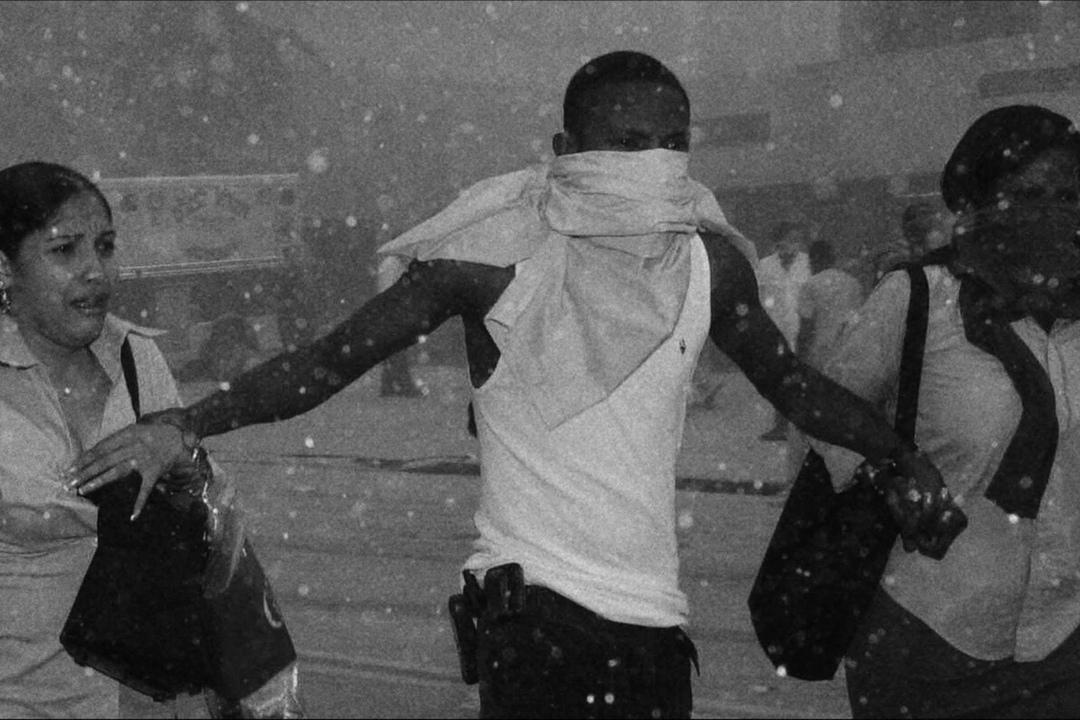
Screen Time is your curated weekly guide to excellent documentaries and nonfiction programs that you can watch at home.
The New York Times critic James Poniewozik recently wrote in this piece, “Is 9/11 a Day, or Is It an Era?”: “For 20 years, the refrain has been: Remember, remember, remember. Memory is so ingrained in the language of Sept. 11 — “Never forget” — as to imply that it is obligatory, and sufficient, for future generations merely to remember by revisiting the narrative and imagery of one terrible day, rather than to connect it to the years of history that followed.”
As important as it is to remember, to commemorate, it is also important to remember 9/11’s place in history and everything it went on to mean—for different people, different countries and different histories. As you watch the documentaries listed in Screen Time this week, remember to honor all of those meanings and traumas that have gone on to symbolize 9/11 for all of us.
Netflix’s five-part docuseries Turning Point: 9/11 and the War on Terror, directed by Brian Knappenger and produced by Lowell Bergman and Mohammed Ali Naqvi, looks at the day in history but moves back and forth in time to chart the rise of Al Qaeda, and the USA’s flawed response to the attacks and home and abroad.
The six-part docuseries 9/11: One Day in America streams on National Geographic and Hulu. Through the eyes of witnesses and survivors, the series, made in collaboration with the 9/11 Memorial & Museum, retells and re-memorializes the events of the fateful day— “from the first plane hitting the north tower to the last survivors being rescued from the rubble.”
Spike Lee’s four-part documentary essay for HBO, NYC Epicenters 9/11-> 2021½ emerges from over 200 interviews he conducted with first responders, politicians, and journalists, along with his family and friends. He also deftly joins the dots with the trauma of the ongoing global pandemic, and the Black Lives Matter protests.
PBS’ Generation 9/11, directed by Liz Mermin and produced by Arrow Pictures, looks at the after-effects of 9/11, the day, and gazes at the legacy of the event as it has touched the lives of many children who were born in the wake of the tragedy. It looks at how this generation, as it steps into adulthood, deals with a pandemic and other global crises.
Over at Criterion Channel, Laura Poitras’ feature documentary trilogy—My Country, My Country (2006), The Oath (2010) and Citizenfour (2014)—sheds light, in Poitras’ trademark investigative style, on another of 9/11’s troubling legacies: The rise of the American security state.
While embarking on an intended war on terror, the US ended up ignoring the needs of several of its own, especially the 9/11 First Responders, whose labor and dedication ensured that the tragic numbers didn’t keep soaring. In Rob Lindsay’s No Responders Left Behind, available onDiscovery+, we are acquainted with the long fight for healthcare for First Responders, spearheaded by activists Jon Stewart and John Feal.
Over at Showtime, Detainee 001, from Greg Barker, assesses the USA’s ruthless enterprise of “eliminating terrorist networks.” Centering on the arrest of John Walker Lindh, “the American Taliban”, the documentary exposes how “America grapples with justice in the fog of war and how narratives are built and destroyed in the aftermath of battle.”
Can there be any art after 9/11? The Outsider, streaming on TVOD platforms through Abramorama, argues yes. The film by Pamela Yoder and Steven Rosenbaum is the story of Michael Shulan and his crowdsourced photo exhibit, “Here Is New York.” As it talks of the healing powers of art, the documentary also explores the dangers of institutionalizing radical art and limiting its potentials by constricting it within the confines of museum curation and canon-building.
On September 8, 9 pm, watch Nick Fituri Scown and Julie Seabough’s Too Soon: Comedy After 9/11 on Vice TV. The documentary, through its exploration of the comedy industry and its grappling with tragedy, dares to answer “Yes” to a question that was often asked after 9/11: “Will We Ever Laugh Again?” Not only do people find a way to laugh, but they also are able to use comedy as a meaningful tool for political critique as the country embarked on a war.